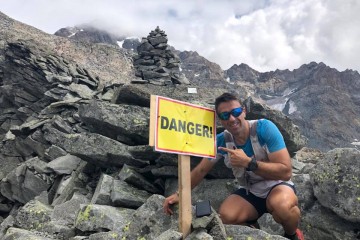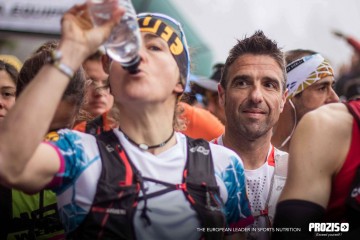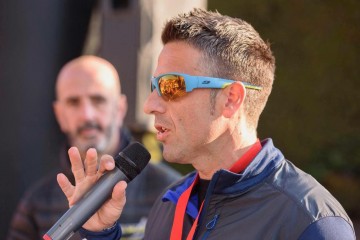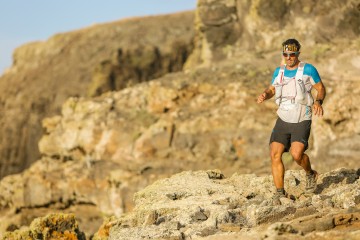The 2019 Skyrunner® World Series calendar has been announced, together with the new, single ranking system to determine the best skyrunner in the world. Fifteen races in eleven countries make up the new calendar which includes five new races.
Starting with 2019, all points scored will be counted towards a single Sky Race category ranking. A limited number of SuperSky races will award extra bonus points.
The bonus races are:
- Transvulcania Ultramaraton (74 km, +4,350m) - 11th May (La Palma, Spain);
- Livigno SkyMarathon (34 km, +2,700m) - 15th June (Livigno, Italy);
- Buff Epic Trail (42 km, +3,325m) - 9th July (Barruera, Spain);
- Matterhorn Ultraks (24 km, +2,800m) - 23rd August (Zermatt, Switzerland).
A separate event, the Sky Masters (19th October), will represent the climax of the season where the top athletes will confront each other in a single race. Entry is open only to qualified athletes – a highlight for runners, fans and media alike.
With an eye on the demand from skyrunners for new and shorter races, the 2019 calendar ticks all the boxes and includes features that distinguish the sport – ridge running, via ferrate, snowfields and scrambling – in some of the most spectacular and iconic locations worldwide.
Skyrunner® World Series 2019 - Race calendar.
Skyrunner® World Series 2019 - Rules.
The big reform of the Skyrunner® World Series continues.
Considering the significance of this reform and interest from our running community, our magazine approached one of the masterminds behind the reform, Albert Jorquera, manager of Athletes Relations of the company SkyMan SA, with a few questions.

Albert Jorquera.
TRAIL-RUN: The Skyrunner® World Series has undergone significant changes during the past three years, what was the cause for such a dramatic reform? Is Skyrunning returning to its original concept?
ALBERT: Well, there are several reasons that altogether give the answer. The main one was to make the World Series more reasonable, logical and understandable by the fans. In the past we had three categories and, therefore, six Champions every year but, who was the best amongst them? The competition system itself was tricky and complicated to follow. Moreover, as you suggest, I think that Skyrunning had gone off-limits and stepped into the ultra-distance, with races that were long, but not really technical or in high altitude. That created a bit of confusion amongst the fans. I believe that it was important to question ourselves and come back to the original roots of Skyrunning: short, technical, fast races in high altitude, ridges, rocks, snow…
TRAIL-RUN: Who is the initiator of all these changes and who is currently managing the series?
ALBERT: Back in 2016, the owners of the Series, Marino Giacometti and Lauri van Houten realised they needed to run the competition more professionally. Together with two seasoned sports marketing executives, they founded SkyMan SA, a company based in Switzerland. SkyMan’s mission is to deliver the best possible series for the athletes, the organisers and the fans. SkyMan signed a long term contract with the ISF (International Skyrunning Federation) so they could start to put in action a plan focused on service, quality and focus of what skyrunning should be. The team grew and if I was the first full time employee of SkyMan, we have now up to 6 people involved during the season.
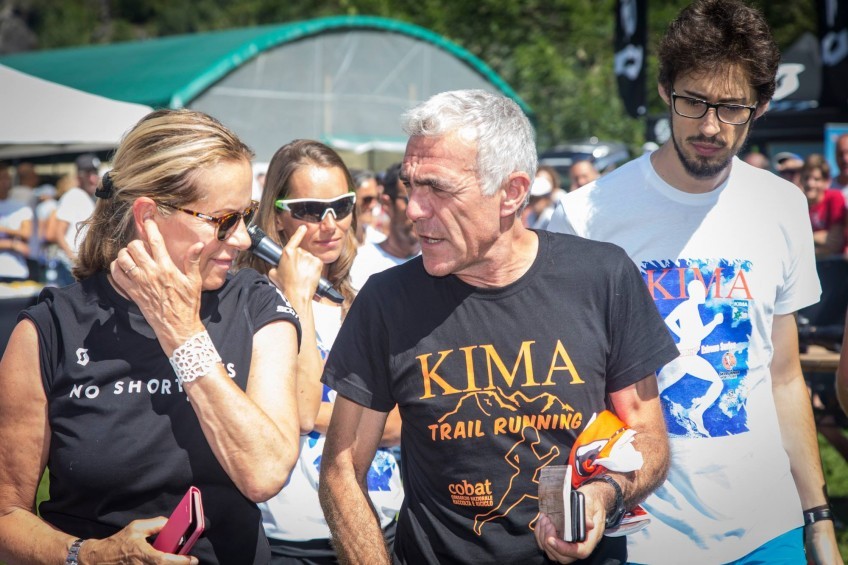
Marino Giacometti and Lauri van Houten. Photo Sportdimontagna.com
TRAIL-RUN: Why is the World Series in 2019 prioritizing short races, for example, why are ultra-races practically gone from the calendar?
ALBERT: That’s a very interesting question. And the answer is simple. We want to create a territory of our own, not overlapping with the very well organised Ultra Trail World Tour. We respect what they do, but it does not match our philosophy. We have seen in the past years many runners entering in this training madness and getting badly injured or not even running anymore. I think that now people run less, but smarter. Saying that, short distances allow to run more races per season. Another key point of the Skyrunning is that we want short, fast-paced and exciting races where the athletes compete neck to neck until the last meter, something that doesn’t usually happen in the ultradistance.
TRAIL-RUN: Beginning next year, you are introducing a single ranking for the Skyrunning series that includes all the different disciplines. Why, what do you hope to accomplish with this?
ALBERT: This point is the consequence of all the other conclusions. First of all, make the sport easier to understand for the athletes and the fans. Second, we believe that a true Skyrunner must be able to perform well in the short distance (22 km), a marathon, extreme races like Tromso or KIMA. The best example is Kilian Jornet, but I wouldn’t like to focus it only in him. This year we saw Marco De Gasperi, the Sky Classic World Series Champion, starting for the very first time in Transvulcania and finishing 4th. So, it’s possible.
And if it’s not, you still will be able to be high in the ranking, but you’ll never be the first. The most exciting thing for 2019 is that we’ll crown the most complete mountain runner in the World, the best in all kind of races and terrains. I also believe that, like it happens in tennis, being in the top-10 or top-20 on the final ranking will have a big credit, because in the end you’ll be competing against everyone, not only with the skyrunners that are specialist in a concrete distance.

TRAIL-RUN: Is the single ranking aimed at identifying a universal athlete who can run equally well short, medium and ultra distances?
ALBERT: More than distances, we focus on the mountain. The mountain is different everywhere, surprising and often technical. We go out of paths and we ask the runners to use their hands when needed. The winners of the 2019 Migu Run Skyrunner World Series are the man and the woman who can best “Run the Mountain” in all its variety.
TRAIL-RUN: Should the national Skyrunning associations follow the changing ISF rules and align their national series with the Skyrunning World Series?
ALBERT: The Skyrunner World Series may be more stringent than the ISF rules but they perfectly comply with them. We encourage the National Series to make their circuits more exciting and build a solid base to promote the sport all over the world. It doesn’t happen overnight but the movement is very encouraging.
TRAIL-RUN: This year Salomon organized and conducted their own Golden Trail Series, which included such significant races as Zegama-Aizkorri and Marathon du Mont-Blanc. What do you think of the departure from SWS of many significant races that are so strongly associated with Skyrunning?
ALBERT: If you associate so strongly some races with Skyrunning, is because the SWS made them iconic. The example of Glen Coe, created only 4 years ago, is typical. Last year many athletes conveyed us their wish to see new races, new courses, new countries and we felt it was very important to go into that direction. In 2019 we penetrate Japan, which everyone is very excited about, we revive historical races as ZacUP and we discover new fantastic races as Skyrace des Matheysins. It will be an exciting season.
TRAIL-RUN: Is this reform final, or should we expect more changes in 2020?
ALBERT: We live in an ever changing environment. We must first see the results of the 2019 Season. Our goal remains the same and we’ll adjust the road to get there if needed.
«Less Cloud, More Sky».
